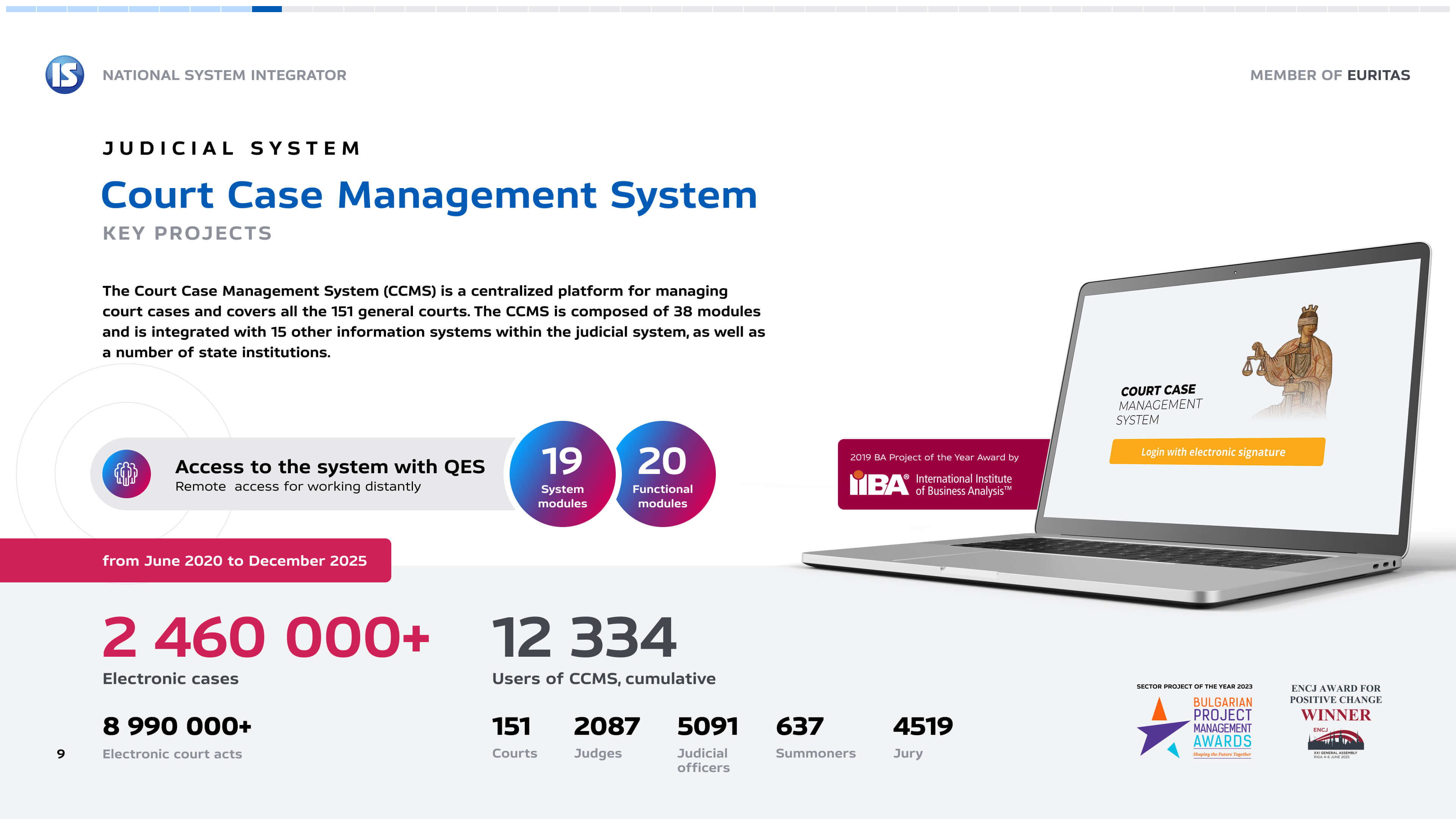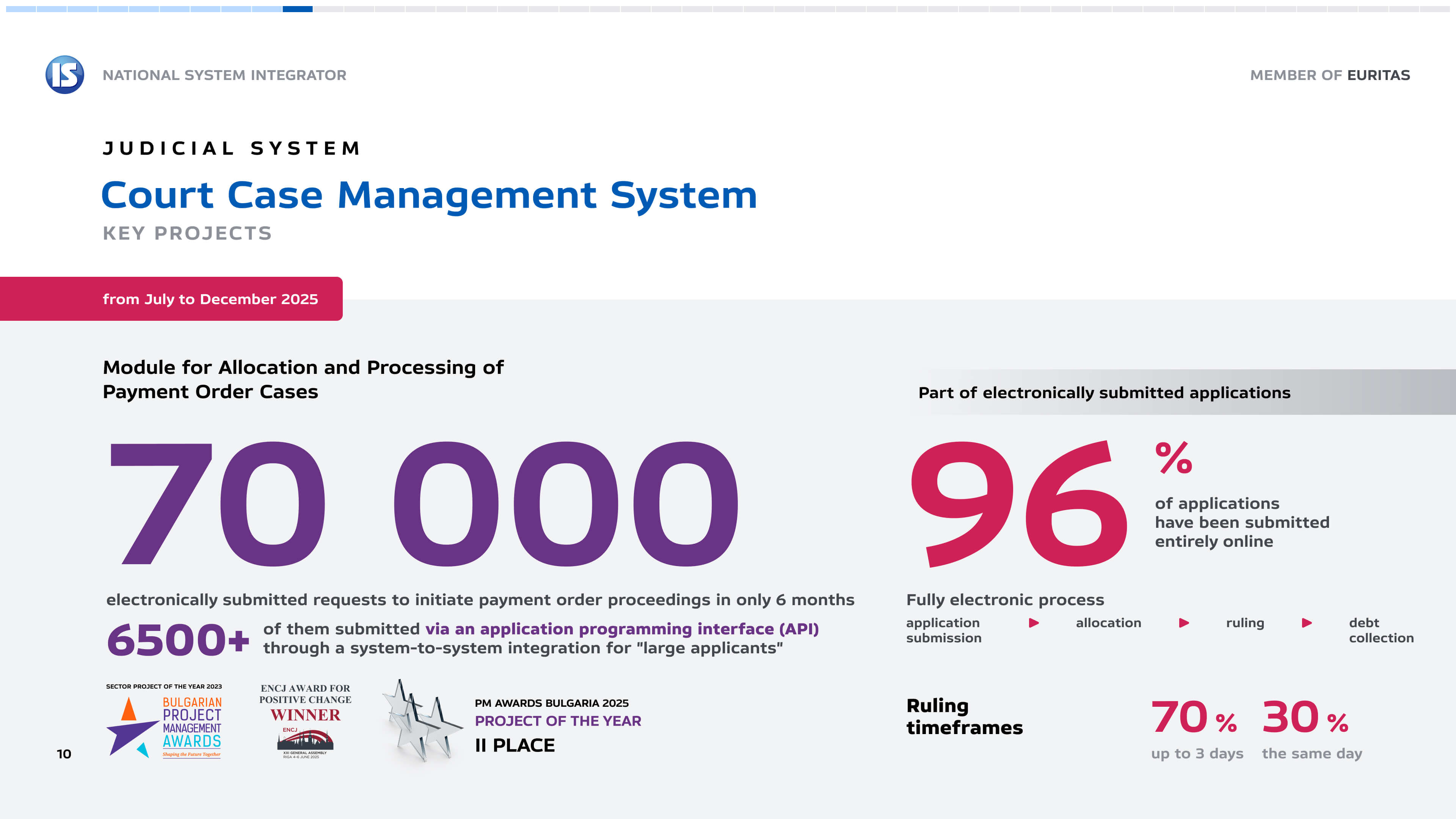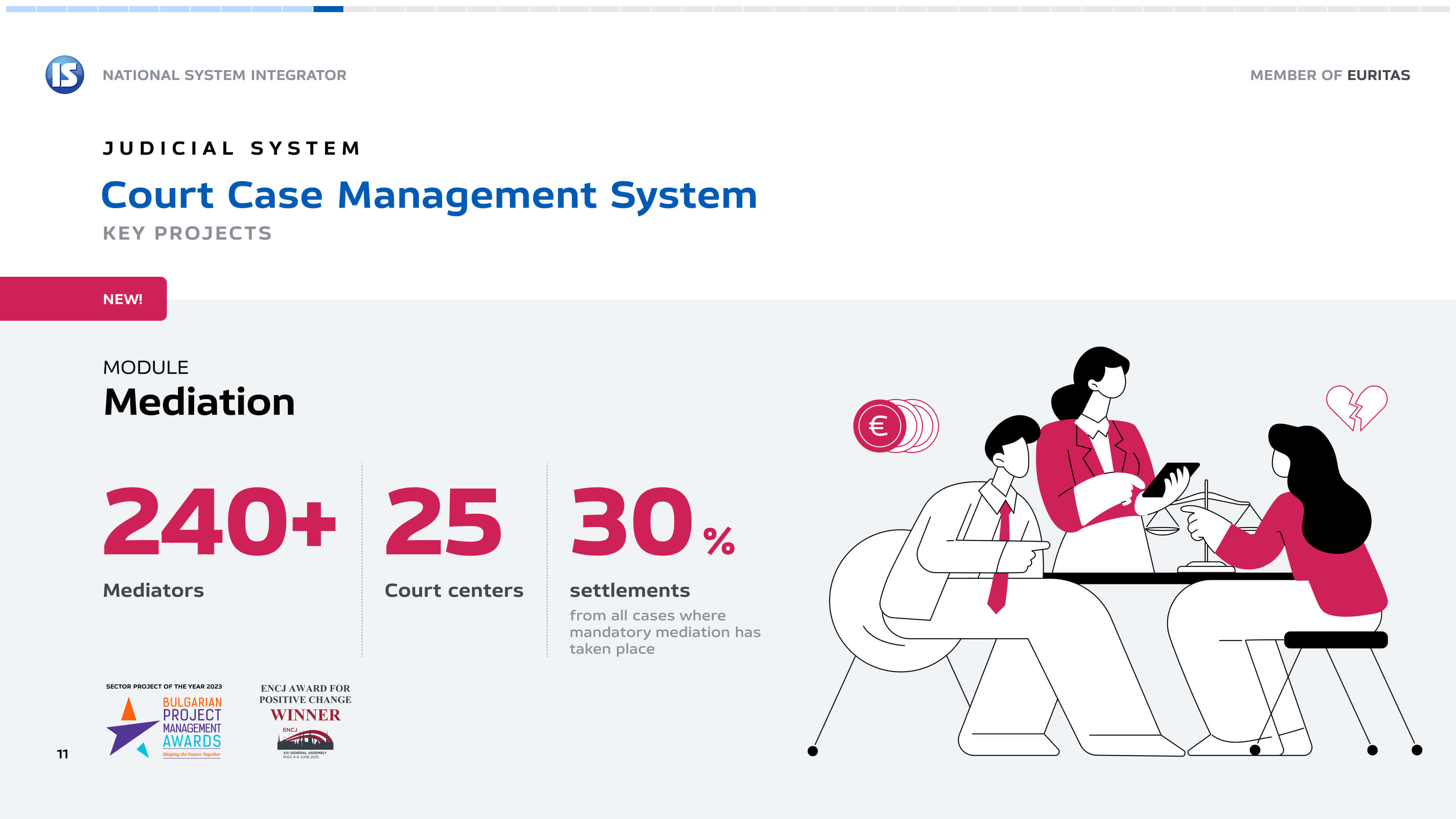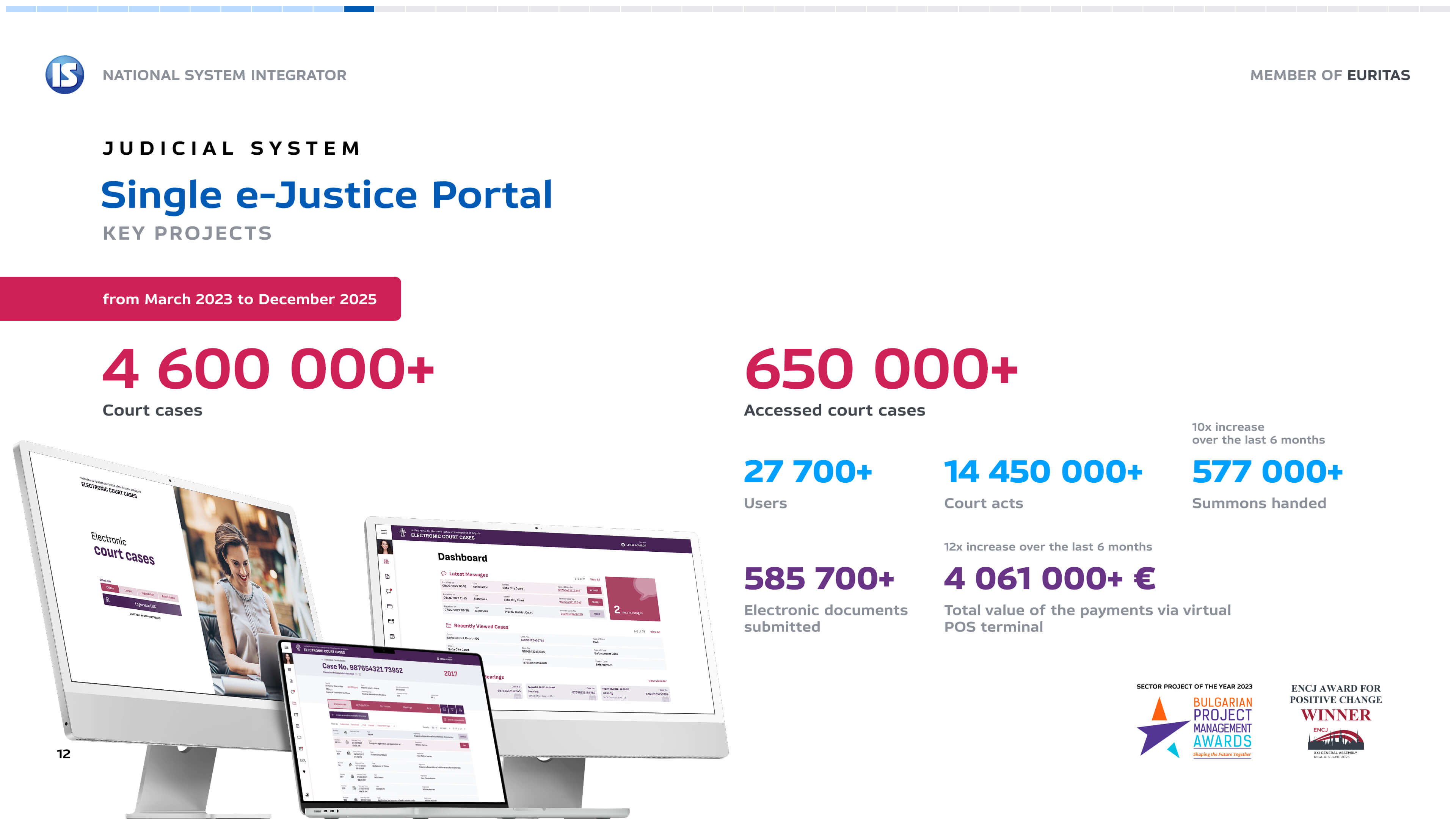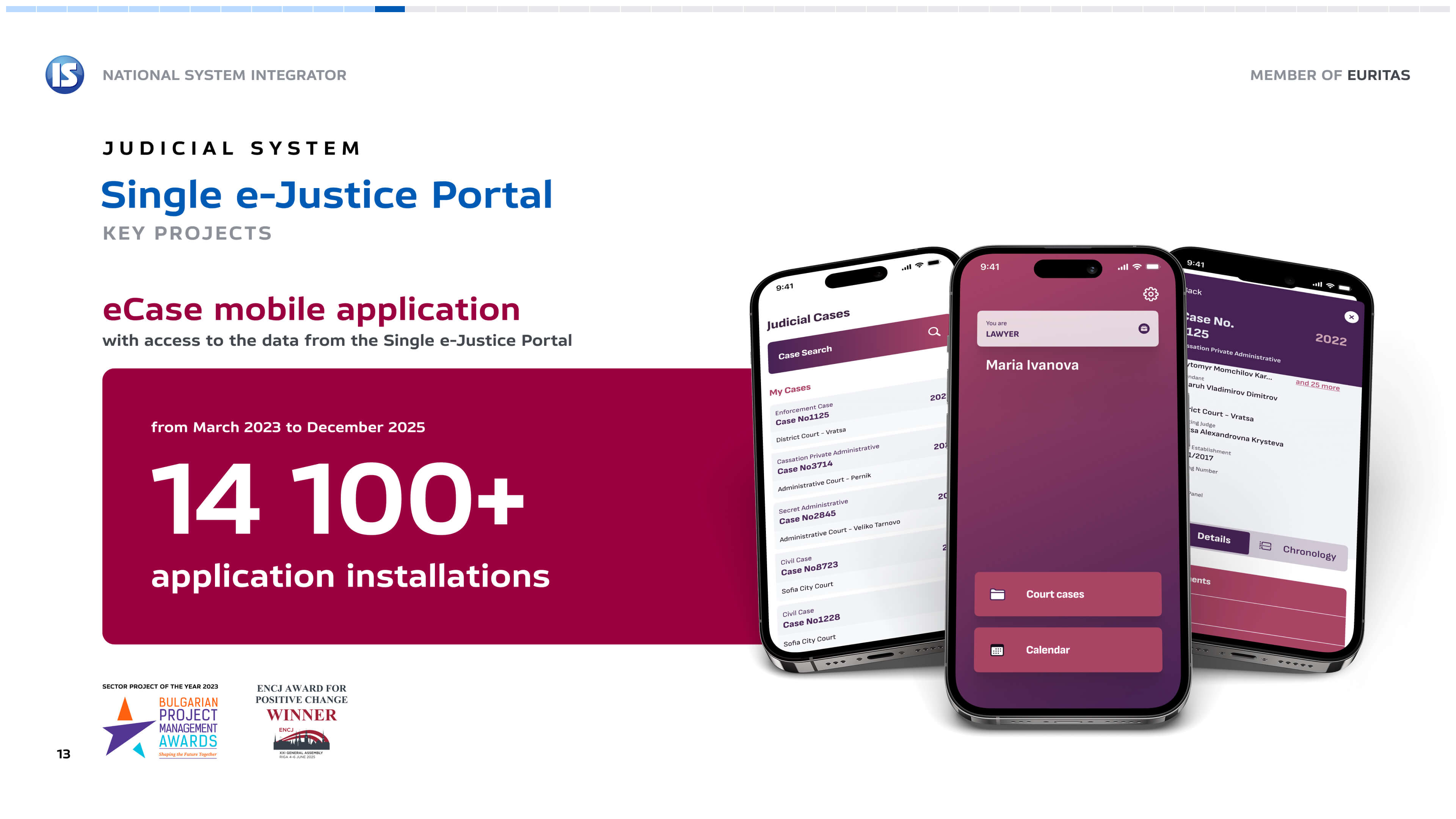
The e-Justice significantly optimizes the workflow and increases the efficiency of magistrates and court staff.
The main projects developed in the field of e-Justice are:
Court Case Management System
The Court Case Management System (CCMS) is a platform for court case management. The system covers all 151 general courts. CCMS is structured in 19 functional and 19 system modules and is integrated with 15 other information systems of the judiciary as well as a number of state institutions.
CCMS is a court case management information system that integrates the entire electronic court case management process from registration of initiating documents, through case initiation, random distribution of cases, management of hearings, adjudication and disqualification of acts, court statistics, judges' workload and financial management of cases, management of summons activity, including through a mobile application for the summons officers. For citizens, the system provides the opportunity for easier access to justice, equal access to information for all parties in the cases, saving time and money and obtaining up-to-date information. One of the significant benefits of the CCMS is the real-time access to an electronic case folder and the ability to remotely access information about cases, procedural actions taken and the results of those actions. As a web-based information system, the CCMS ensures optimized and reliable electronic case management with the necessary information security to protect the information processed and exchanged by the judicial authorities, as well as the protection of citizens' personal data. By the end of 2023 year, more than 1 430 000 electronic cases have been initiated and more than 4 842 000 electronic court acts have been issued through the CCMS.
Single e-Justice Portal
The Single e-Justice Portal (SEJP) gathers all the e-services related to the justice system such as electronic court cases, deeds, submitting applications under Article 410 of the Civil Procedure Code, electronic criminal records, register of appeals, etc. The portal provides the opportunity for online registration of users, creation and management of profiles of legal entities, electronic request for access to cases, new electronic services for initiating court proceedings, submission of documents in cases and electronic payments through a virtual POS terminal. The main objective of the project is to improve the access of citizens and businesses to e-justice by creating conditions for carrying out procedural actions in electronic form, electronic summons and electronic payment.
Single Public Register of Recusals
The Single Public Register of Recusals (SPRR), created as a tool to fight corruption in the judiciary, is an internet accessible register where information is published on the court acts containing the court's ruling on the recusals requested by the parties to the cases and the reasons by which they were granted or not, as well as the court acts containing the recusals on the court's own initiative (selfrecusals).
Specialized Information System for Monitoring and Analysis
The Specialized Information System for Monitoring and Analysis (SISMA) is developed as a centralized web-based information system for automated collection and processing of statistical data from the judiciary – data exchange with the CCMS and Unified Filing Information System (UFIS) of the Administrative courts , The Unified Information System (UIS) of the Prosecutor's Office of Republic of Bulgaria , The Unified Information System for Combating Crime (UISCC) и The Centralized Information System of The Investigation Services (CISIS), as well as systems of the National Statistical Institute.
Single Register of Jurors
The Single Register of Jurors (SRJ) is a public register, accessible via internet, where information on jurors is published. Through the public part of the register it is possible to publicly monitor the functions performed by the jurors and their involvement in court processes. The SRJ contains information about jurors, their specialties, the term for which they were selected, and participation in court cases.
Mobile application eCase
The application developed by Information Services provides any user with a registered account an access to the all court free public access cases, to cases with personal participation, review of all attached electronic documents, handing of electronic court documents, etc. It significantly increases the efficiency of the justice sector and facilitates access to justice for citizens and businesses.
The projects of Information Services in the field of e-Justice have received prestigious national and international awards.

